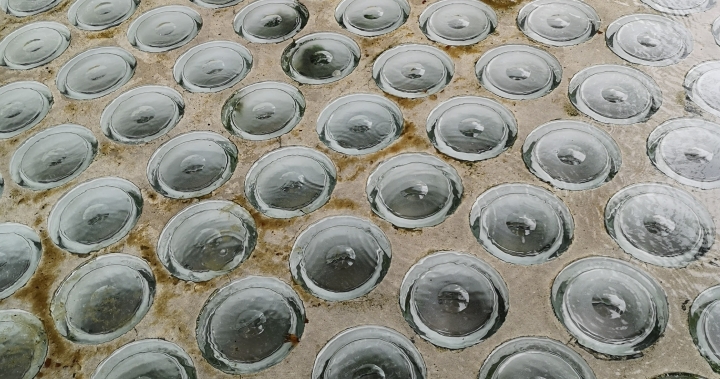
According to official Russian sources, the Ukrainians are either killing their own people or staging highly realistic scenes of mass murder, with the sole aim of discrediting Russia’s invading forces.
Of course, nobody in their right mind, except perhaps the most dyed-in-the-wool ideologue or craven fellow traveller, believes any of this.
Applying David Hume’s test of miracles, we have three choices here: either the Russian Government is telling the truth and Russia’s enemies have over many years, from Grozny by way of Aleppo to Bucha, made a concerted effort to create elaborate, often murderous theatrical installations on a vast scale; or the Russian Government genuinely believes that this is happening even though it isn’t; or the Putin regime has malign intent, and is lying. Hmm…
I touched on the role of untruth in my previous piece on the Ukraine war. As I said in one of my earliest blogs (and forgive me for quoting myself), ‘if we’re to survive and thrive as a species, Truth, together with its siblings Fact, Evidence and Analysis, should be placed on a pedestal’.
Truth aligns with what is – the thing we call ‘reality’ – and untruth generally doesn’t. Untruth lives for itself, generating narratives that have only oblique traction on understanding or action. Language itself becomes devalued, decayed, even meaningless. That’s a kind of natural law that applies to any polity, but particularly the authoritarian or totalitarian.
In the context of Ukraine, much attention has been focused on whether President Putin is hearing the truth from his subordinates. In any event, Putin is an unreconstructed KGB man, and deceit is his thing, setting the tone that others follow.
Beyond the country’s leadership, untruth has a deeper, more corrosive effect on the fabric of Russian society. Its tentacles reach out through all strata, trumpeted by state-controlled media, repeated in the echo chambers of conversation, hemmed in by the criminalisation of truthful narratives. As in any society, people like the lies that confirm what they already believe, no matter how far-fetched. Ordinary Russians would rather believe that foreigners bomb themselves than that their soldiers are committing war crimes.
As one Russian commentator said of Ukraine: ‘Denazification is a set of measures aimed at the nazified mass of the population, which technically cannot be subjected to direct punishment as war criminals’. The meaning of this sentence of course collapses with any reasonable definition of the word ‘Nazi’ (i.e. an adherent to the tenets of National Socialism). It doesn’t mean ‘someone with a different point of view to the Putin regime’ or ‘someone not within the Russian sphere of influence’ (and on the question of the Azov Battalion, see here). Language thus subjugated to ideology exists only in the mind of the believer.
Back in the real world, though, lies beget more lies, which are then internalised and consolidated by those who propagate them and those who believe them, and then they come to form the currency of everyday discourse. Liars never know when to stop, because to do so would be to admit the sequence of lies that led to this point. They build an edifice of bigger and bigger lies, riven with structural faults, like a cowboy builder shoring up a supporting wall.

The cost we all pay for the lies of others and for those lies we choose to believe is immense, and civilisational in its impact. Self-reflection becomes impossible because the language of untruth is a broken mirror: you cannot reflect on that for which you have no reliable data. Acting on the basis of a lie has an unstable, ephemeral quality, a tragic equivalence to that trope of situation comedy in which untruths spiral into impossible situations.
The principal victim of a lying culture is, though, trust. This applies to pretty much anything Putin’s Russia says about anything, from what is happening on the ground in Ukraine to the content of negotiations to resolve the conflict, including future security guarantees. And yet trust within the in-group – the Russian populace – remains startlingly high, revealing how powerful and all-encompassing the culture of untruth has become.
Of course, it would be naive to think that endemic lying was solely the preserve of the Putin government. It’s the stock-in-trade of all dictators, autocrats and populists, and even in democracies we’ve priced in the extent to which politicians are economical with the truth, telling tales to win votes, promising the undeliverable, playing to base instincts on issues like immigration. The Trump Presidency set new standards in this regard. Here in London, the Johnson administration presides over a tin pot Orbánisation of British politics and culture, crossing the constitutional red-line of lying to Parliament, thus far without remorse or repercussion. Worldwide, truth-telling has its back against the wall, with all eyes now on the outcome of the presidential election in France.
How does any nation, any people, disentangle itself from untruth? A good starting point is individuals asking themselves whether they’re hearing more than one perspective on events. But people are busy, and digging out the range of views time-consuming (and, in a quasi dictatorship like Russia, near impossible to access). Russia’s dawning reality will embrace: economics, as people’s quality of life begins to slide amid sanctions (though the Putin government will try to blame the West); the human cost of war, as sons, fathers, brothers fail to return home from Putin’s Ukraine adventure (though a narrative of heroism in the fight against ‘Nazi-ism’ may well predominate); and personal testimony, as Russians allow themselves to hear the accounts of those who have lived through the brutality of the invasion (though confirmation bias might well neutralise misgivings). An uncertain outlook, then, though we need to stare that truth in the face to be able to deal with it.
If President Putin has done the world any kind of service through his reckless invasion of Ukraine, it is in alerting us to the danger that a culture of untruth represents. For those of us fortunate enough to live in liberal democracies, it’s a wake-up call. We’ve let it slide too long, and we need to re-establish the primacy of truth in all we think and do.
To put it back up on that pedestal, where it belongs.


It is worth re-reading George Orwell’s essay on Politics and the English language. This passage seems especially pertinent:
“In our time, political speech and writing are largely the defence of the indefensible. Things like the
continuance of British rule in India, the Russian purges and deportations, the dropping of the atom bombs on Japan, can indeed be defended, but only by arguments which are too brutal for most people to face, and which do not square with the professed aims of political parties. Thus political language has to consist largely of euphemism, question−begging and sheer cloudy vagueness. Defenceless villages are bombarded from the air, the inhabitants driven out into the countryside, the cattle machine−gunned, the huts set on fire with incendiary bullets: this is called pacification. Millions of peasants are robbed of their farms and sent trudging along the roads with no more than they can carry: this is called transfer of population or rectification of frontiers. People are imprisoned for years without trial, or shot in the back of the neck or sent to die of scurvy in Arctic lumber camps: this is
called elimination of unreliable elements. Such phraseology is needed if one wants to name things without calling up mental pictures of them. Consider for instance some comfortable English professor defending Russian totalitarianism. He cannot say outright, “I believe in killing off your opponents when you can get good results by doing so.” Probably, therefore, he will say something like this:
‘While freely conceding that the Soviet régime exhibits certain features which the humanitarian may be
inclined to deplore, we must, I think, agree that a certain curtailment of the right to political opposition is an unavoidable concomitant of transitional periods, and that the rigors which the Russian people have been called upon to undergo have been amply justified in the sphere of concrete achievement.’”
Plus ca change…
It’s also worthwhile recalling that Putin’s disinformation (Orwell would probably want me to use the word “lies” instead) can be attractive to – or at least tolerated by – many ordinary Russians, especially older ones, for a range of understandable reasons. Older Russians in particularly regarded the Yeltsin years as chaotic and humiliating, and were grateful to Putin for restoring a measure of stability to Russian politics. They also benefited from significant economic advances, and the greater availability of consumer goods, in the early part of the century. More generally, there is some sympathy with Putin’s assertion that the fall of the Soviet Union (by which he means Russian colonial domination over other nationalities within the USSR’s former boundaries) was a tragedy. Finally, it is worth recalling Orwell’s dictum that many people use the word “fascist” to describe whole groups of people simply because they disagree with their political opinions. So older Russians probably do have some sympathy with the idea that Ukraine should really be part of Russia (or closely associated with it – like Belarus), and that therefore it is easier and more comfortable for them to accept the party line that the Ukrainian government is illegitimate and oppressive; that ordinary Russian-speakers in Ukraine are being oppressed; and that the invasion is therefore justified and that it is being carried out within the norms of international law than it would be for them to challenge and criticise the actions of Putin’s government.
So I agree with your cataloguing of the malign effects of lying; it’s the things which cause people (politicians) to lie which are so intractable. Putin, Orban, Kaczynski, Erdogan are some of the more extreme examples, but I am sure you are right to call attention to the dynamics which have affected Johnson and Trump.
LikeLike
Thanks, Richard. I agree on the demographic issues, and the impact of the 1990s on the outlook of ordinary Russians – it was a truly terrible time for them, and Putin did bring stability. Your Orwell quote suggests that there’s never been a ‘golden age’ in which truth has triumphed, but at least in liberal democracies we have Orwells (or just now, Peter Hennessy) who are at liberty to point out the shortcomings of government. I guess truth is in the same category as ‘freedom’, ie. it requires eternal vigilance.
LikeLike
This is so well-written, Roger. Thank you. It reminds me of the closing courtroom speech in the HBO series ‘Chernobyl’; “Every lie we tell incurs a debt to the truth. Sooner or later that debt is repaid.”
LikeLike
Thanks, Laurence – really appreciate that. And the Chernobyl quote couldn’t be more spot-on.
LikeLike
Quote from Kite Runner Khaled Hosseini: There is only one sin, only one. And that is theft. Every other sin is a variation of theft… When you kill a man, you steal a life. You steal his wife’s right to a husband, rob his children of a father. When you tell a lie, you steal someone’s right to the truth. When you cheat, you steal the right to fairness.
LikeLike
I remember that quote, Ian. I thought it a profound insight into the human condition – thanks for reminding me of it.
LikeLike
I’ve just discovered your blog and it is refreshing to read something so well thought out (and written) and which addresses something I am increasingly concerned about. In particualr in social media people seem to be divorced more and more from reality as they are spoon fed the views that agree with what they already think by a mindless algorithm whose only job is to keep their attention. I see this divorce from truth and reality entering the work place too – where people think they can cherry pick the things they agree with and discount or ignore any evidence they do not like. I noticed it while working on DOLS, where we crossed paths a few times.
LikeLike
Yes, Pam – it is very worrying!
LikeLike